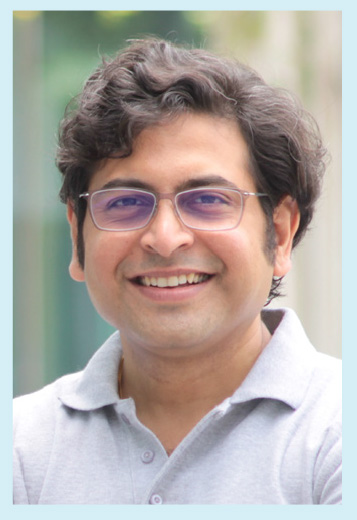No more septic tank deaths
Even after reaching the mars and moon, we have not found a solution to manual scavenging. Though it has been banned by law, this cruel act of sending a person into the man hole has been customary for long and the most painful part is that only certain sects of people are assigned to do that. Professor Prabhu Rajagopal deeply affected by this set out to find a solution at his lab, Center for Non-Destructive Evaluation. “We have been developing sensors and robotic tools for inspecting inaccessible regions of structures deep underwater in varying conditions like high temperature, radiative, corrosive,…” explained Prabhu.
About 7 years back, with the help of his student Tanuj, Prabhu had developed a robot for inspecting water bodies. That is when they came across the use case for exploring sewer lines. As they went deeper into the problem, its complexities unfolded. They began with inspecting the sewer lines at IIT Madras. The more than 50-year-old infrastructure lacked maps, manhole positions were random and even a few had deep roots from age old trees spreading in them. Once they got access, the extraneous substances ranged from chocolate wrappers, sanitary pads and various other things that clog and choke the sewage flow. “This field study helped us understand that what we were developing till then would not be useful in real world condition. So we came back to the lab and did some research to come out with a bio-inspired design. It has a fish-like propulsion unlike the earlier rotary propulsion,” said Prabhu. Thus, Sipoy the robot was born to inspect septic tanks. NGOs, like the Safai Karamchari Andolan came forward and they requested to develop a similar solution for desludging septic tanks. This is where asphyxiation cause instant deaths and even those who survive are left with several side effects. “At that time, we did not have any solution and came back to the drawing board. After a lot of research, we came up with HomoSep in 2019. Just getting a pair of eyes to inspect inside was not enough, we needed something that could do heavy duty homogensation,” remarked Prabhu.
An initial seed grant from IIT Madras for socially relevant projects and then a reward from Carbon Zero Challenge helped in bringing out the first prototype. It was the project of a Master’ student, Divanshu Kumar and it went on to win the best project. CSR support from Capgemini, NSE foundation and L&T technology foundation helped growing from strength to strength.
With limitations of a lab, a startup, Solinar Integrity was spinned off to further this initiative. “In a laboratory we can’t develop a field deployable solution. There are several stages like experimentation, understanding challenges, refining the design and then rebuilding it. These processes cannot be done in a lab and it is also not rewarding by way of papers or patents. But in a startup, you have people dedicatedly working on a certain problem with an intent to commercialise the solutions,” remarked Prabhu. This spin-off has been done in a highly circular way. The IPs for this solution have been registered by IIT Madras and these are licensed out to the startup. “It is a nice social give back model and completes the cycle,” said Prabhu proudly.
The first product was launched in May 2022 and it comes in three variants. Heavy duty blades are sent inside the tanks and the speed of homogenisation is decided by a robot based on the content. Then the sludge is sucked back to a tank through a custom developed pipe. Prabhu is an advisory member in the board and he highlights the ground level problems, “Manholes are of various sizes and at odd positions. This makes it difficult to access through machine. Yet another major challenge is funding for the basic research. Organisations come forward to procure and distribute the machines, but there is a crunch in funding for the primary work. In this case, we had to develop the sludge inhouse as the original is poisonous, corrosive and hazardous to handle,” highlighted Prabhu. So far about 17 machines have been deployed across Tamil Nadu, Karnataka, Gujarat, Chattisgarh, UP and Odisha. The start up is also working with state governments and corporations.
The team is developing on another variation which can be deployed in sewer manholes. The pipe is replaced by a bucket system, where after homogenisation, it is desilted using them. “Through all this, I have had a very satisfactory moment when we created entrepreneurs from safaikars,” said Prabhu proudly. The sanitation workers or family member of those who have died in sanitation work are helped to create self-help groups and these machines are given to them. In Chennai three self-help groups have them and this enterprise model helps people to go about their jobs with dignity of labour.
“I hope this will remove the stigma associated with the work and free up communities held captive by this profession,” said Prabhu passionately.


